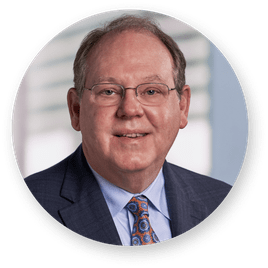result



Expanding Medical Minds

Being a teaching hospital carries with it a responsibility. Houston Methodist’s top-tier faculty share their days with some of the brightest young medical minds in the country. Because of the support of forward-thinking philanthropic friends, the institution’s prestigious graduate medical education (GME) program sponsors 68 residency and fellowship programs. These pair with an academic vision that includes learners ranging from medical students to experienced health care professionals to the community at large.
DR. TIMOTHY B. BOONE
Chief Education Officer,
Houston Methodist Academic Institute
Craig C. Brown and Suzanne H. Smith Centennial Chair in Medical Education at Houston Methodist


Q
Why does Houston Methodist make training and education TOP prioritIES?
Houston Methodist leaders have long prioritized building a well-rounded, independent academic medical program. This makes us an attractive and expansive training ground for the most talented new physicians, who often end up practicing medicine where they’re taught. For patients, it means expanded access to doctors and highly specialized care not typically available at nonacademic medical centers.
We host a robust GME program at Houston Methodist Hospital, where we train close to 380 high-achieving residents and fellows from across the country in their various specialties and subspecialties. We also will soon add new free-standing residency and fellowship programs at Houston Methodist The Woodlands Hospital thanks to a significant gift from a generous benefactor.
We’ve partnered with Texas A&M University School of Medicine to broaden our scope to host medical students in their clinical rotations — today at both our main campus and Houston Methodist Willowbrook Hospital. Texas A&M students can also pursue an innovative MD/PhD degree under the mentorship of faculty at the Houston Methodist Academic Institute. And we partner with Weill Cornell Medical College on an additional PhD program housed at Houston Methodist Hospital.
Q
IN what ways has this academic focus changed the institution?
It brings about a huge cultural shift to commit to molding the next generation of physicians and scientists. But it’s in our DNA, and we’ve been fortunate to have the support of benefactors who have made impactful gifts to help us remain at the top of our game. This focus opens doors to novel concepts and innovation and advances scholarly activity within our faculty. It also helps us recruit and retain master clinicians interested in educating their successors.
It drives other initiatives too, like EnMed, our engineering-medicine partnership with Texas A&M, and our launch of the Houston Methodist Institute for Technology, Innovation & Education (MITIE℠) virtual hospital and other procedural skills labs, where clinicians undergo evidence-based practice in a real-world context. Likewise, we’ve formed alliances with the University of Houston and Rice University for educational and research collaborations.
Q
How has philanthropy directed what we can accomplish in training and education?
Philanthropy helps us better serve the larger community by being better educators. Our education programs have grown in concert with our translational research and innovation endeavors — so new therapies that once took decades to move from concept to clinic today take mere years. Philanthropy also makes possible our community care program, which sends residents and fellows who are training under top physicians into areas to care for patients who may otherwise not have access to exceptional health care. Together with these partners, we are improving the health and welfare of the entire region.
Discover More


